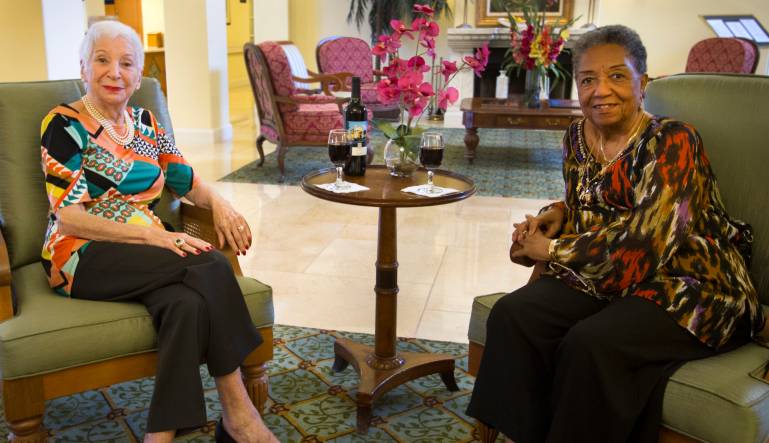Family members often say one of the greatest emotional struggles Alzheimer’s disease presents is finding ways to protect their loved one’s dignity. As the disease advances, the senior loses the ability to care for themselves. They may not recognize that their hair is a mess or they need a shower.
Struggling to find the right words can cause a senior with dementia to withdraw. This may cause friends and family to treat them differently or give up trying to communicate at all.
For family members, watching the decline of a beloved elder can be painful. Families can take certain steps, however, to make sure visitors and health professionals interact with the senior in ways that protect their self-esteem.
Protecting Dignity and Promoting Self-Esteem
1. Don’t allow the senior to be treated like a child.
When verbal skills and short-term memory are impaired, a senior may be unable to retain new information and carry on a conversation. People they encounter might unconsciously use language or a tone that is patronizing. It’s important to gently intervene and not allow the elder to be treated like a child.
Also, replace words like “diaper” or “bib,” with kinder words such as “brief” or “clothes protector.” Don’t talk about or allow others to talk about the older adult in front of them. Even if the senior can’t respond verbally, it’s important to include them in conversations.
2. Remind people of your aging loved one’s story.
The senior is more than their diagnosis. It might take reminding people of their story to keep that in perspective. When friends and family visit, share the senior’s highs and lows in life, and how they overcame adversity.
Talk about what the older adult’s hobbies were in younger days, and what they like to do today. Shining the spotlight on their remaining abilities instead of their losses may help people see beyond the disease.
3. Encourage and support independence.
There is a saying among dementia-care providers that the more you do for an adult with dementia, the more you take away from them. Allowing a person with dementia to maintain as much of their independence as possible is important.
Because your family member’s capabilities may fluctuate from day-to-day, you will need to be flexible. Allow them to attempt to do as much as they are able to at any time. Be patient, and step in to help only when it’s needed.
4. Be a patient, kind listener.
When it comes to dementia, entering the world of the person with the disease is important. That includes watching and listening with true empathy. It can be tough to do sometimes, especially when you are busy and words don’t come easily for the senior.
The same is true when visitors or outsiders are involved. For example, if the senior has a doctor’s appointment, encourage the staff to include the senior in conversations. Step in if your loved one is struggling and you sense their self-esteem is suffering.
Memory Care at Five Star Senior Living
Memory care communities help adults with dementia live their best life despite the disease. If you are beginning the search for memory care, we have some tips. Five Star Senior Living is one of the nation’s leading providers of memory care. Contact us to learn more or to schedule a private tour at a community near you!

